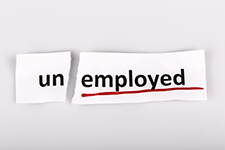 “If I’m unemployed, is it making me less employable for the jobs I’m applying for?” It’s the question facing millions of people who struggle to find work in a weak job market.
“If I’m unemployed, is it making me less employable for the jobs I’m applying for?” It’s the question facing millions of people who struggle to find work in a weak job market.
One of the long-lasting impacts of the Great Recession is how many job seekers are continuing to have trouble starting over in a new job. For the long-term unemployed (those out of work for more than six months), a Princeton University study found that only 11 percent found steady employment. So, does being unemployed make you less likely to get a job?
It Can, But It Doesn’t Have To
When an employer is looking over a resume, they want to see not only what type of work history you have, but also what you are currently doing to improve yourself professionally. While out of work, it’s tempting to focus on applying for as many jobs as possible and getting your information to your network of friends and family to help you get an interview. But your efforts can’t stop there.
If you’re unemployed, take this time to improve your current skills or learn a new one. A recent Harris Poll survey of the unemployed found that 64 percent are not planning to go back to school to make themselves more marketable to employers. Career Technical Education locations in your community often have classes you can take to keep you up-to-date in your field, but can also provide you with the opportunity to learn a different skill or trade.
When employers are struggling to find qualified workers in the industrial, health care, and IT fields, this may be the perfect time for you to learn a new skill set. Most programs can be completed in two years or less, and tuition is much more affordable than a traditional four year degree from a university.
Keep Working
Going back to school is great way to fill in the gap in your resume, but if that isn’t an option, consider taking a part-time job to add to your resume. This will demonstrate your work ethic and show employer you’re ready for an opportunity to continue your career. And if part-time work isn’t an option, consider volunteering in a way that uses your skills.
Whether your background is in administrative work, human resources, accounting, or another field, you have something to offer to a non-profit or charity. Most of these organizations are often under-staffed and depend on volunteers with expertise in different areas to come in and do some work for them for free.
When a potential employer looks through the stack of resumes and sees that you’ve spent time serving others in the community using your skills and expertise, you will stand out and have a leg up on the competition.
Some Employers May Not Hire You
In a few places, it is illegal for an employer to discriminate against job seekers based on their employment status. But for the most part, there is no legal protection from your unemployment having an impact on the hiring process, and that means you may run into this problem.
So what can you do? If you think an employer won’t hire you because you’ve been out of work, it’s a tough situation to deal with. But when you turn your focus from the gap in your work history on your resume, to the people you know, your job search could be revitalized.
Connect with People and Stay Positive
Build your network of contacts. Reach out to family and friends to introduce you to people who could have an impact on your job hunt. Help a potential employer get to know you as great candidate and not another resume in the stack sitting on their desk.
If you’ve done all you can to improve yourself since becoming unemployed, it’s likely you won’t stay out of work for long. The Harris Poll survey of the unemployed also found that 91 percent of the unemployed are hopeful they will find a job they really want in the next six months. Hard work during this time in your life will set you up for success in your future career and make this an experience you look back on with pride as you overcame obstacles that wanted to keep you down.
How do you make sure you’re still employable if you’re unemployed? Share with us in the comments section below.
Movin’ On Up is brought to you by Express Employment Professionals.

 I can’t stress enough how important
I can’t stress enough how important 